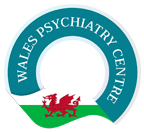
Autistic Spectrum Disorder (Child)
Autistic Spectrum Disorder (ASD) is a neurodevelopmental condition with difficulties in socialization, communication, and interaction with people. In addition, there are presence of restricted, repetitive patterns of behavior, interests, or activities. They may have sensory difficulties such as with food, clothes, and sound. Often it causes difficulties in school and social settings. The symptoms may change with development and may be masked by compensatory learnt behaviours however must cause significant impairment.
Autism (with significant language difficulties) and Asperger syndrome (with no language impairment and high functioning) were seen as two separate categories in the past however, both the categories are recognized as being part of a spectrum now and called Autistic Spectrum Disorder.
Young persons with ASD will have symptoms from early childhood but may not be recognized until later. The symptoms become more noticeable when the social demands exceed their capacity. Behaviours like ASD can be seen in children with learning disabilities, language disorders, certain genetic conditions and problems related to pregnancy and childbirth.
What do I do if I am concerned that my child may have ASD?
First step would be to talk to your child’s teachers. Find out about local parenting schemes so you can learn more about how to manage your child’s behaviours and help your child with ASD features. You could talk to the school nurse, your GP, or the local ‘Hub’. Discuss with school or your GP about getting referred to your local NHS services (usually referred to as the Neurodevelopmental Team).
What if I want to be referred privately?
Dr Sharma, the best child psychiatrist in Wales, is happy to assess children privately for ASD. Ask your GP to refer to him.
Please note that having an assessment does not guarantee any specific diagnosis. Nor can he guarantee that the child will receive educational support or disability benefits as a result of having a diagnosis. Although having a clear diagnosis is important, support at school and other benefits depend on the extent of the child’s impairment and their level of need rather than the medical label itself.
What will the assessment involve?
If your child has been referred for ASD assessment this will involve the following:
- An initial appointment will be for one and half hour. Dr Sharma would assess the main concerns and take a full history including developmental history. This is also an opportunity to observe the child’s behaviour and interaction in the consulting room. He will assess whether there are features of any other mental health disorder and will advise how to go about this.
- If there are enough features suggestive of ASD, then Dr Sharma will offer to proceed with full assessment. He will discuss and advise you accordingly.
- If you are happy to proceed with the full assessment, another test called ADOS (Autism Diagnostic Observation Schedule) will be carried out. ADOS is a semi structured, standardized test to assess communication, social interaction, restricted and repetitive behaviors. ADOS by itself is not a diagnostic tool but provides valuable information in the assessment of ASD.
- Dr Sharma will provide questionnaires for the parents and school to complete. The parents will be asked to discuss the concerns with their child’s school and ask them for a report on the problems that arise in school, how much impairment they are causing, and what action they have already taken to try to help the child.
- A second appointment, for one hour, will be arranged when these reports and questionnaires are available. If the information obtained from parents and child, clinic observation, ADOS, school reports and ASD questionnaires from school and home all point to an underlying ASD problem, a diagnosis of ASD may be confirmed.
- If there is contradictory or conflicting information at this stage, further assessment may be needed. For example, an educational psychology and/ or speech and language assessment to rule out any learning needs or language disorders. Dr Sharma can usually suggest how it can be arranged.
- If the assessment suggests some other problem, such as a behavioural or learning problem, and not a mental health problem such as ASD, then Dr Sharma will discuss this and advise you on the way forward.
- Dr Sharma will write a letter that you can share with your child’s school and/or local NHS paediatrician or CAMHS as appropriate. The letter will be usually sent to your GP as well.
- If a diagnosis is confirmed, the management of ASD primarily involves behavioural and educational input. This is usually available in your home area and your local school. Behavioural programmes are often delivered by services such as National Autistic Society, Autism Wales or through other specific local projects. Dr Sharma can discuss how to identify and access this support.
How much is the fee for the assessment for ASD?
The total fee for whole assessment including detailed report will be £2200.
The fee for initial assessment will be £600. If there are enough features suggestive of ASD from the information provided by parents, then further assessment would be carried out. The fee for further assessment will be £1600 (2200-600).
Would my child be prescribed medication?
Behavioural and educational input are the mainstay of the treatment for children/ adolescents with ASD. There is no specific medication to treat ASD however Dr Sharma is happy to discuss the role of medication if there are any co-morbid mental health issues such as anxiety or depression.
If medication is prescribed, Dr Sharma will discuss a Therapy Treatment Agreement with you.
Follow-up for ASD
Dr Sharma will arrange for a follow up if medication is prescribed. He would discuss the follow up arrangements with you in the clinic.
What if I suspect that my child has ADHD/ADD as well as ASD?
A proportion of children with ASD also have some traits of ADHD/ADD. Dr Sharma can assess for ADHD/ADD in the private clinic and can formally diagnose ADHD/ADD following national guidelines. Most areas now have local Neurodevelopmental Teams that have an agreed assessment and diagnosis pathway with the local Education services. Diagnoses given outside this pathway may not be recognised by the local Education services. It is best to ask your GP to refer to the Neurodevelopmental service if you are looking for formal ADHD/ADD diagnosis.
What if my child has another condition in addition to ASD?
Dr Sharma will try to assess any other comorbid conditions such as depression, anxiety, etc and would make recommendations for managing those issues.
If you are unsure whether to proceed or want more information, please email
Dr Sanjeev Sharma
Consultant Child and Adolescent Psychiatrist
Email: child.psychiatrist@yahoo.co.uk
(9:30 AM - 1:30 PM)
(5:30 PM - 8:00 PM)
Request An Appointment
For appointments, please contact us via email at: info@walespsychiatrycentre.com
- Terms & Conditions | Legal Disclaimer | Privacy Policy | Complaints Policy

